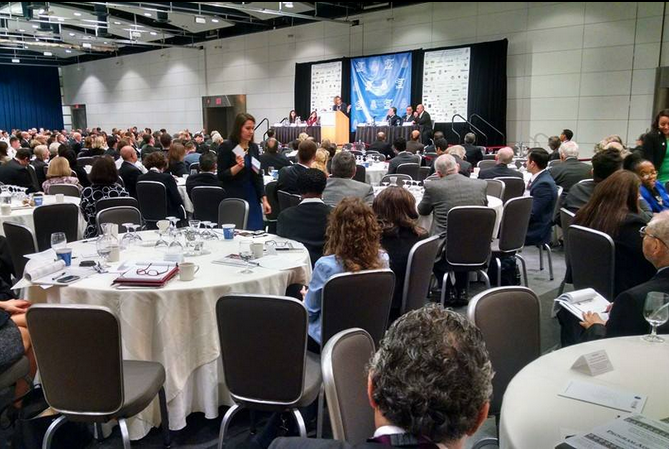Saudi Arabia’s Prince Turki al-Faisal, Chairman, King Faisal Center for Research and Islamic Studies, Riyadh, Saudi Arabia and former Saudi Arabian Ambassador to the United Kingdom and to the United States of America, delivered sharp criticism of those who put forth unsupported allegations of Saudi financing of extremism abroad, urging them to come forward with information so action can be taken.
The comments were made at the conclusion of a wide-ranging speech on the leading challenges in achieving stability in the Middle East at the National Council on US-Arab Relations’ (NCUSAR) annual Policymaker’s Conference in Washington, D.C.
Prince Turki also blasted Iranian interference in Syrian affairs, noting that their support of Hezbollah and other provocative acts were destabilizing the region. Turki also said that Obama’s reticence to get involved in Syria was detrimental to the well being of the country, saying, “Had America and Europe listened to the kingdom and provided the moderate opposition with anti-tank, anti-aircraft and artillery weapons, we would not have had to deploy our air forces to face the challenge of [IS],” according to transcribed remarks by Al Monitor.
#GCC session w/ Dr Sager (@Gulf_Research), @docshayji, @Abdulkhaleq_UAE, @akuwaiz & Amb Seche in Washington, DC pic.twitter.com/YhieGmBUoR
— NCUSAR (@NCUSAR) October 28, 2014
The morning’s keynote address was given by former Ambassador to Saudi Arabia, Chas Freeman, who discussed the region’s challenges in defeating Da`ish, an Arabic term to refer to the Islamic State group.
“To be effective, any American strategy for dealing with the menace of Islamist terrorism of the sort Da’ish represents must not only find regional partners to support, it must address the pernicious legacies of past U.S. policies. These include the legacy of the botched “peace process” in the Holy Land and the more general problems inherent in moral hazard, the confusion of values with interests, and the illusion that military power is a substitute for diplomacy,” Freeman said.
[Read the full text of the speech by Freeman here from the Middle East Policy Council]
The afternoon sessions were dedicated to addressing Arab-U.S. defense cooperation and the GCC’s role in regional dynamics.
To follow the discussion live today and tomorrow, you can use the hashtag #AUSPC on Twitter and follow @NCUSAR and @SaudiUS.









